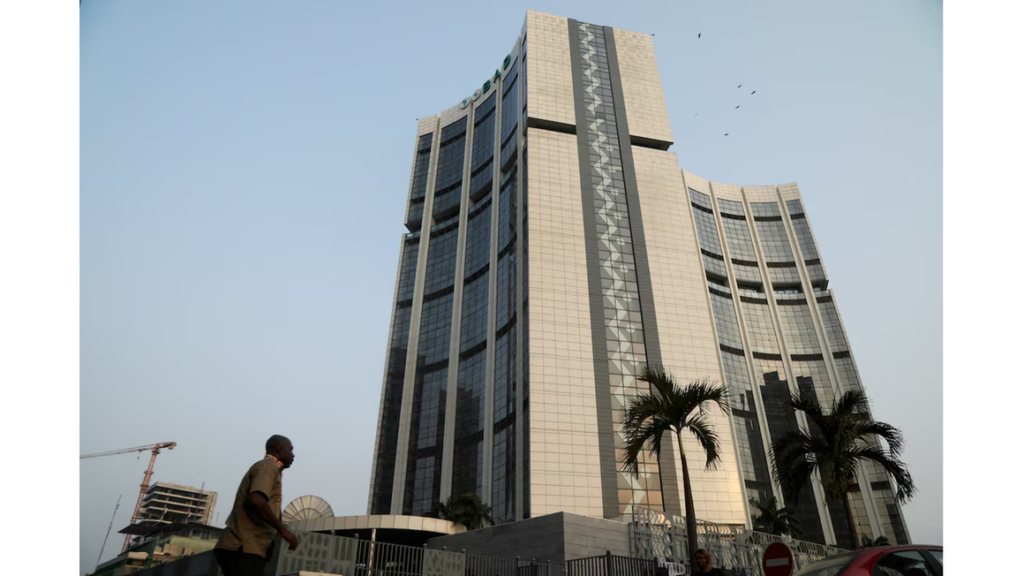- AfDB grant aims to enhance Burundi’s productivity by four to five times and bolster agro-processing for increased domestic and export food availability.
- It also promises significant economic diversification, creating jobs, improving food security and nutrition, and strengthening regional trade.
- This investment can help safeguard the livelihoods of countless farmers against the increasing unpredictability of weather patterns due to climate change.
The African Development Bank (AfDB) has announced $80 million grant to bolster Burundi’s agricultural sector and transform the nation’s agricultural industry.
AfDB’s Director General for East Africa, Nnenna Nwabufo, revealed this financial pledge after meeting with Burundian Prime Minister Gervais Ndirakobuca in Bujumbura. This funding is poised to multiply the sector’s productivity by four to five times, with a keen focus on enhancing agro-processing capabilities to not only increase the availability of food within Burundi but also boost its export potential.
The collaboration between the AfDB and the Burundian government extends beyond mere financial assistance. It encompasses a strategic investment in agro-processing initiatives designed to augment food availability domestically and for export markets.
Furthermore, in December 2023, the AfDB’s board of directors approved additional financing for the construction of a crucial railway line. This infrastructure project will connect Burundi to Tanzania and eventually to the Democratic Republic of the Congo (DRC), promising to open new avenues for trade and economic integration in the region.
This move underscores the AfDB’s commitment to supporting Burundi’s social, political, and economic development endeavors.
Since joining the AfDB Group in 1968, Burundi has benefited from a variety of social and economic projects financed by the bank. The latest funding initiative represents a deepening of this partnership, with a focus on sustainable agriculture and debt management strategies.
Nwabufo’s discussions with Prime Minister Ndirakobuca also touched on how the AfDB could assist Burundi in navigating its debt planning to avoid the pitfalls of high-risk debt distress. This holistic approach to support reflects the AfDB’s comprehensive strategy to foster long-term economic resilience and growth in Burundi.
Read also: KCB Group’s profit dips to $282M on soaring costs
Burundi’s path to self sufficiency in food production
AfDB’s $80 million grant is a testament to the potential the bank sees in Burundi’s agricultural sector. Burundi is poised to achieve self-sufficiency in food production and secure a position in the global agricultural export market by leveraging this investment to boost productivity and enhance agro-processing capabilities.
AfDB’s commitment to the region’s growth, in conjunction with this initiative, infrastructure development, and prudent debt management, opens a new era of prosperity and stability for the country.
Additionally, this investment in Burundi’s agricultural sector carries significant implications for the country’s economy and addresses several key issues with potential positive outcomes. This initiative has the potential to significantly transform Burundi’s economic landscape.
Firstly, this financial boost will help diversify Burundi’s economy, which has been heavily reliant on agriculture. By increasing productivity and enhancing agro-processing capabilities, the initiative not only aims to meet domestic food demands but also positions Burundi as a competitive player in the international market.
This diversification can lead to a more resilient economy, less vulnerable to external shocks such as fluctuations in commodity prices or adverse weather conditions.
Secondly, the investment is likely to create numerous employment opportunities within the agricultural sector and beyond. As agro-processing industries expand, they require a workforce skilled in various aspects of production, packaging, and marketing.
This employment generation can significantly reduce poverty levels, improve living standards, and stimulate further economic activities in related sectors such as transportation, retail, and services.
Another critical outcome of this initiative is its potential to vastly improve food security and nutritional standards within the country. By increasing the availability of food through enhanced productivity and agro-processing, the initiative can help stabilize food prices, making nutritious food more accessible to the population.
This access is crucial for addressing malnutrition and health issues related to inadequate food intake, which are prevalent in many parts of Burundi.
The additional financing for the construction of a railway line connecting Burundi to Tanzania and the DRC represents a strategic investment in infrastructure that can significantly enhance regional trade. Improved transportation networks facilitate the efficient movement of goods and services, reduce logistical costs, and open up new markets for Burundi’s agricultural products.
This connectivity is essential for fostering economic integration in the region, promoting peace, and creating a more unified market that benefits all participating countries.
Read also: EAC integration evolves with Tanzania-Rwanda pact on new border post
Modernizing Burundi’s agricultural sector
Lastly, with a focus on modernizing agriculture and agro-processing, this initiative offers an opportunity to incorporate sustainable farming practices and technologies. These practices can increase crop yields while minimizing environmental impact, ensuring that Burundi’s agricultural sector grows in a way that is both economically beneficial and environmentally sustainable.
Furthermore, enhancing climate resilience through this investment can help safeguard the livelihoods of countless farmers against the increasing unpredictability of weather patterns due to climate change.
In summary, the AfDB’s shot in the arm for Burundi’s agricultural sector is set to unlock a multitude of benefits, ranging from economic diversification and growth, employment generation, improved food security, and nutritional standards, to fostering regional trade and ensuring environmental sustainability.
This comprehensive approach is instrumental in setting Burundi on a path towards sustainable development and long-term prosperity.
